It may come as no surprise that our favorite room in the home at NatureFresh™ is the kitchen. But did you know that the kitchen produces the most waste of any room in your home?
At NatureFresh™, we’re dedicated to making a positive impact on the environment with sustainable, eco-friendly growing practices. Now we want to help spread the movement into your own kitchen!
There are a number of easy changes you can make to have a more environmentally-friendly kitchen.
In honor of Earth Day on April 22nd, we’re sharing our top 15 simple ways you can make your kitchen more sustainable.
15 Ways To #GoGreen In Your Kitchen
- Buy local
- Buy greenhouse-grown produce
- Make use of food scraps
- Prepare your own meals
- Buy in bulk
- Use a compost bin
- Use reusable materials
- Recycle
- Use glass storage containers
- Use cloths instead of paper towels
- Buy eco-friendly kitchen appliances
- Buy fresh produce
- Use biodegradable garbage bags
- Install a faucet aerator
- Reduce waste with proper storage
Supporting local businesses is also very sustainable for the environment. Buying local means your food doesn’t have to travel as far to get to your kitchen—helping reduce the carbon emissions from transportation.
Greenhouse produce growers (including NatureFresh™ Farms!) take many steps to reduce their impact on the environment with water recycling programs, energy conservation plans, and integrated pest management to reduce the use of chemical pesticides. This makes greenhouse-grown produce good for both the environment and your body! Try incorporating greenhouse-grown produce into your meals as a delicious and healthy alternative to less eco-friendly foods.
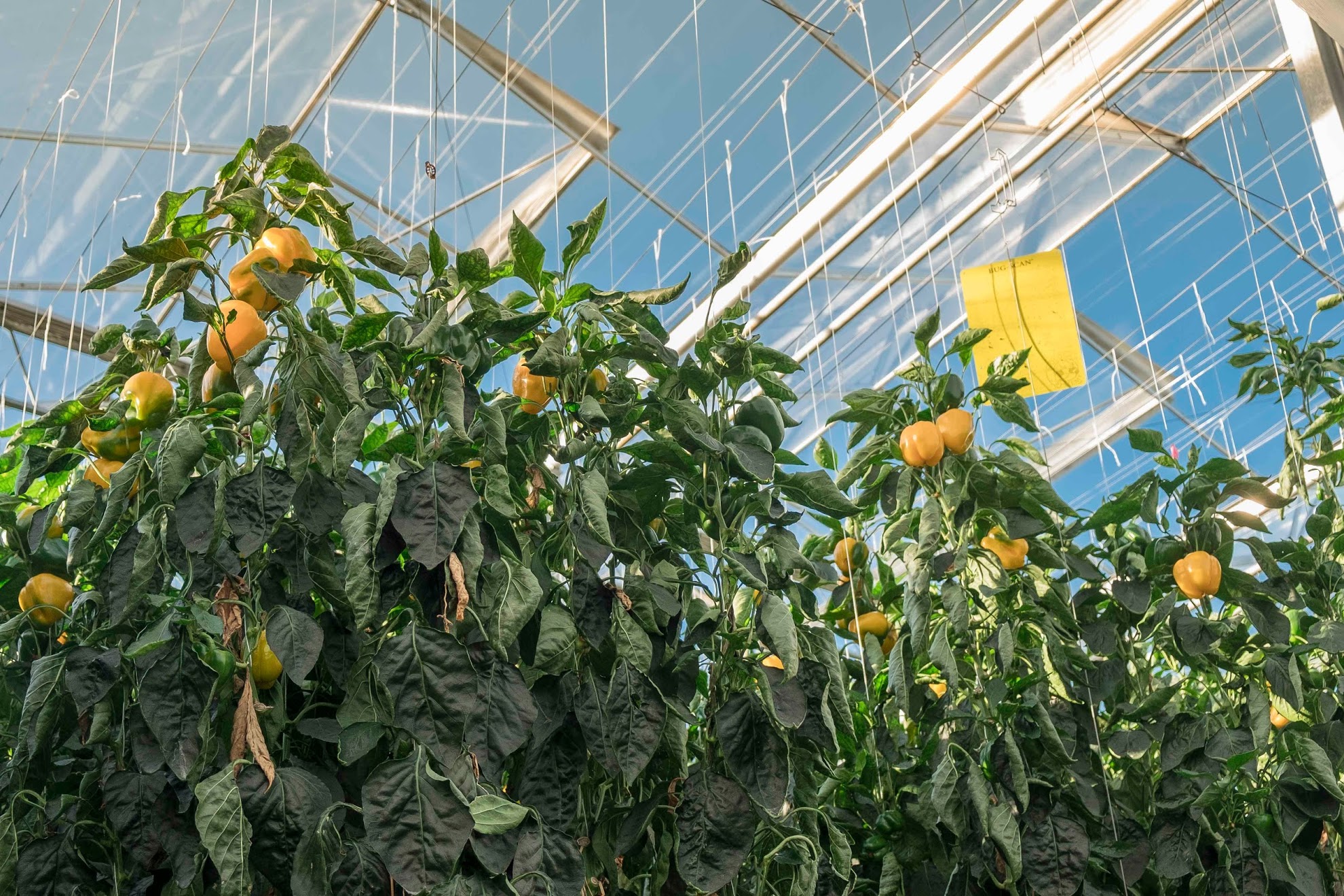
Rather than throwing out food scraps, get a second use out of them by creating something new. Add leftovers from meal prep to make a broth or stew. Or, make nutrient-rich soil conditioner for your plants using leftover fruit peels, veggies, and eggshells.
Instead of sitting down to pre-packaged frozen meals, start preparing your own meals with fresh ingredients. This will help cut down on the amount of packaging you’d usually be buying (and throwing away). Not to mention homemade meals made with fresh ingredients taste better and are healthier for you.
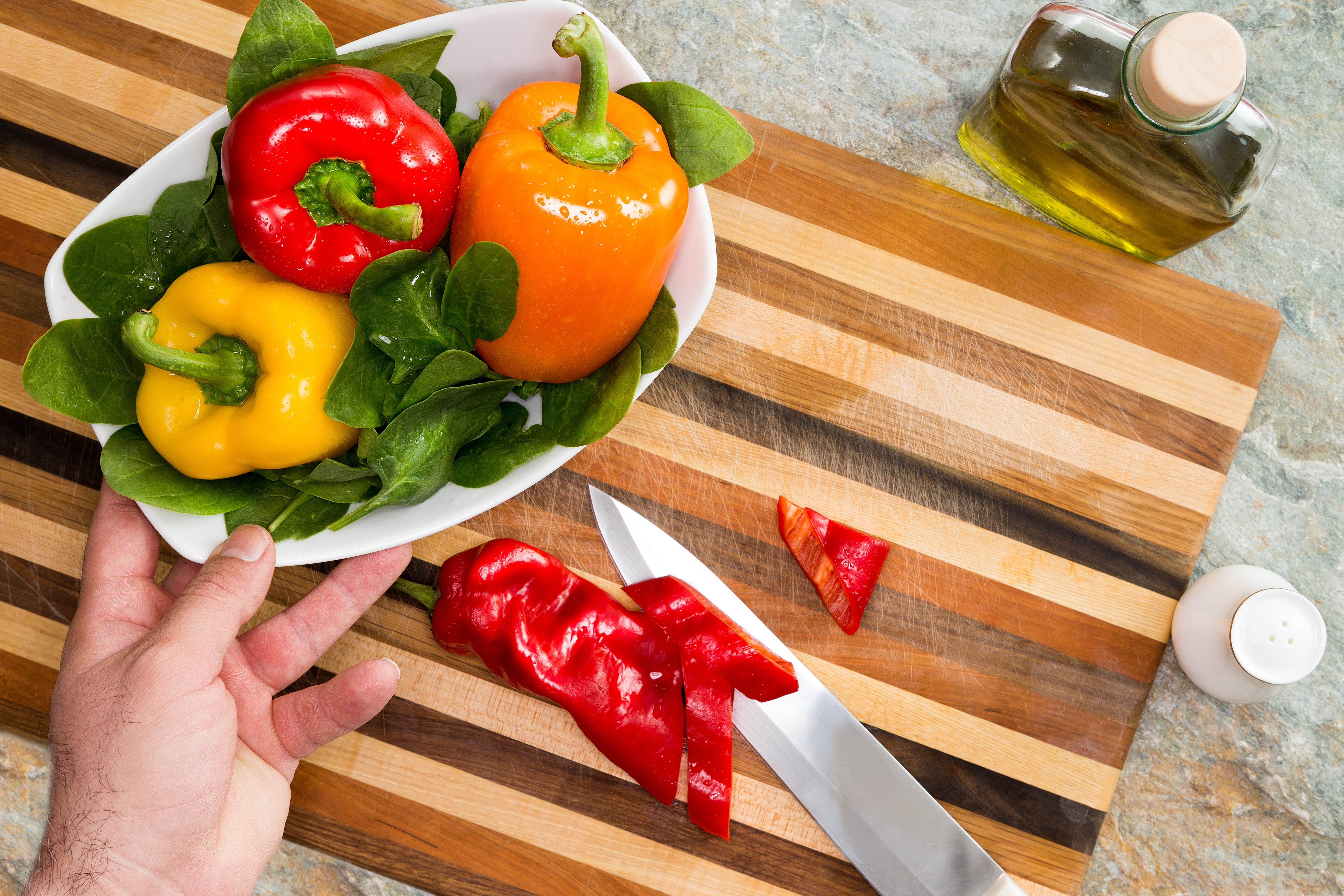
Buy in bulk when you’re purchasing herbs, spices, pasta, nuts, and other ingredients. Like preparing your own meals, buying in bulk helps reduce the waste from overly-packaged food products. Go the extra step by bringing your own reusable storage containers, like glass mason jars.
Around 70% of household and yard waste can be composted instead of thrown in the trash. Instead of throwing out your kitchen leftovers, gather them in a green bin and compost them. This includes fruit and veggie scraps, coffee grounds, bread, crackers, cereal… the list goes on!
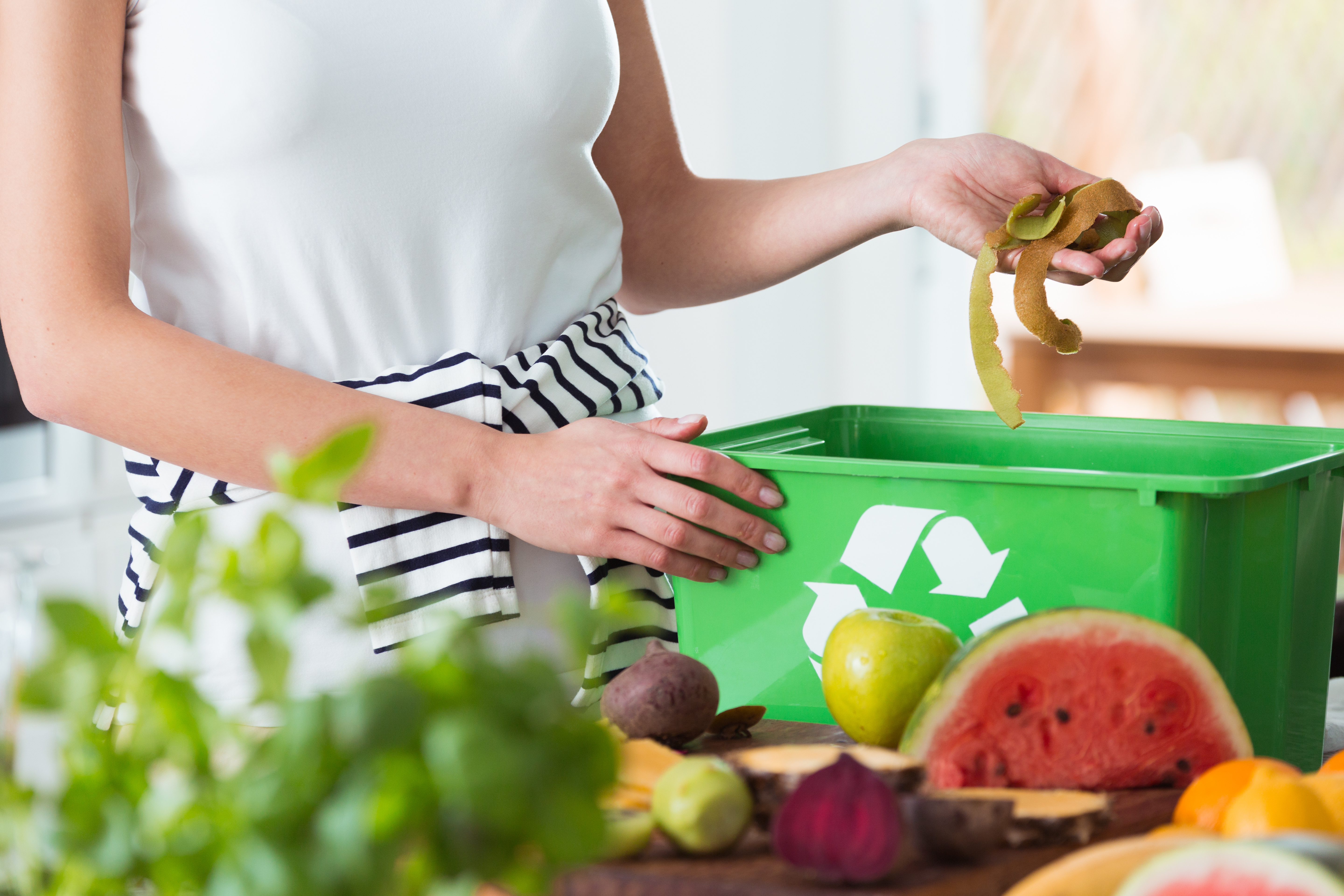
Reduce the amount of plastic in your kitchen by switching to reusable materials. Replace plastic sandwich bags with mason jars or glass storage containers, and swap plastic shopping bags for reusable totes.
Get in the habit of recycling by having a dedicated bin for recyclables in your kitchen. Keep an eye out for plastics with recycling codes #1 and #2 (including containers like soft drinks, salad dressing, milk jugs, and shampoos)—these ones belong in the recycle bin!
Many plastic containers are made from non-renewable resources like petroleum. Swap your plastic storage containers for more eco-friendly glass containers. Bonus: they’ll last longer than those plastic containers.
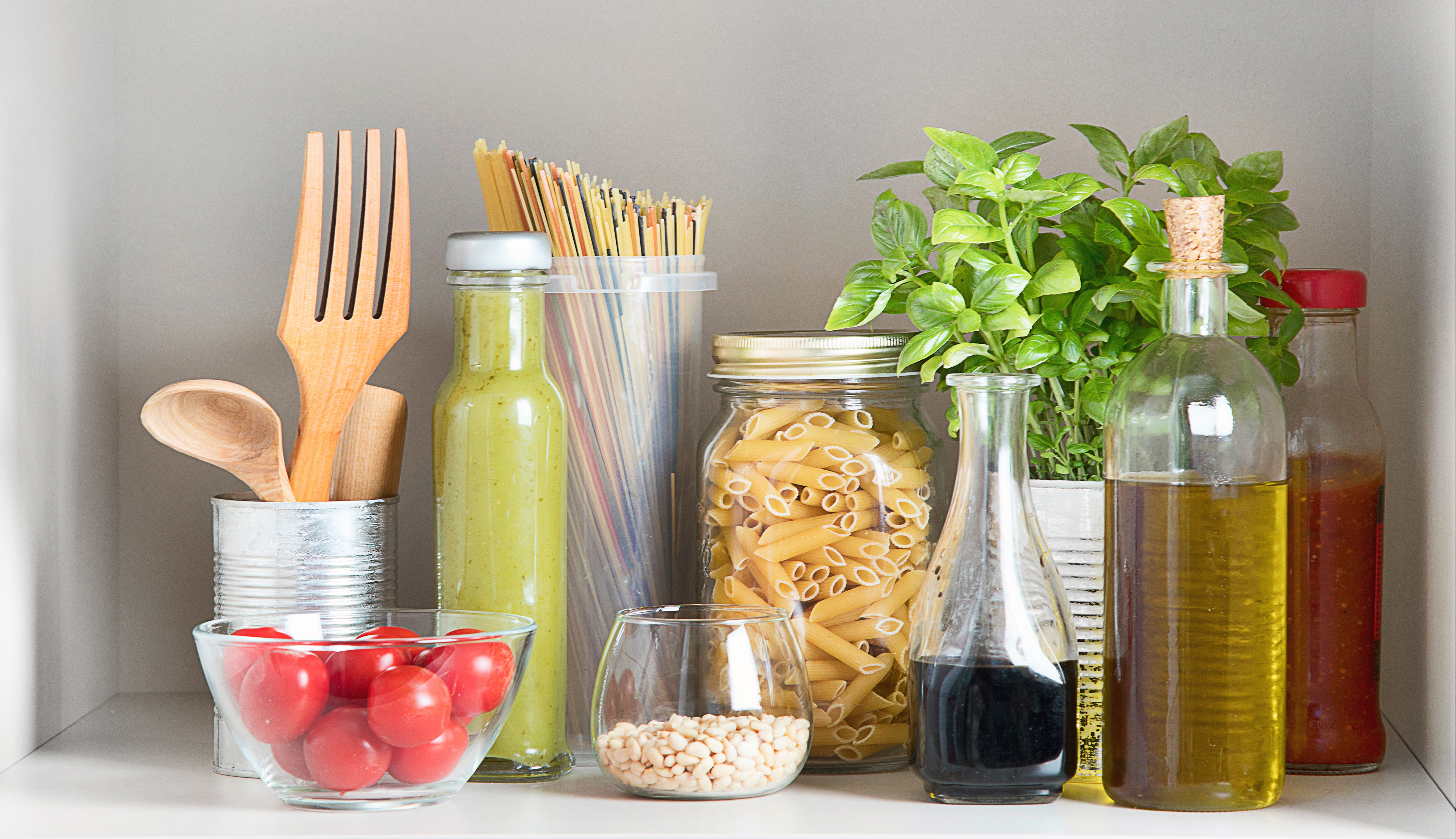
Instead of paper towels, use cloths for kitchen clean ups and spills. Reusable cloths mean less waste by saving paper towels from being used and thrown straight in the garbage.
When buying kitchen appliances, look for the Energy Star logo. These Energy Star-rated appliances use up to 50% less energy than other kitchen appliances, helping you reduce your environmental impact (plus save a few dollars on your hydro bill).
Opt for fresh produce rather than packaged or frozen. Buying fresh helps reduce the amount of packaging making its way to your kitchen’s trash bin. If you can’t avoid produce packed in plastic, make sure you’re recycling as much of it as you can!
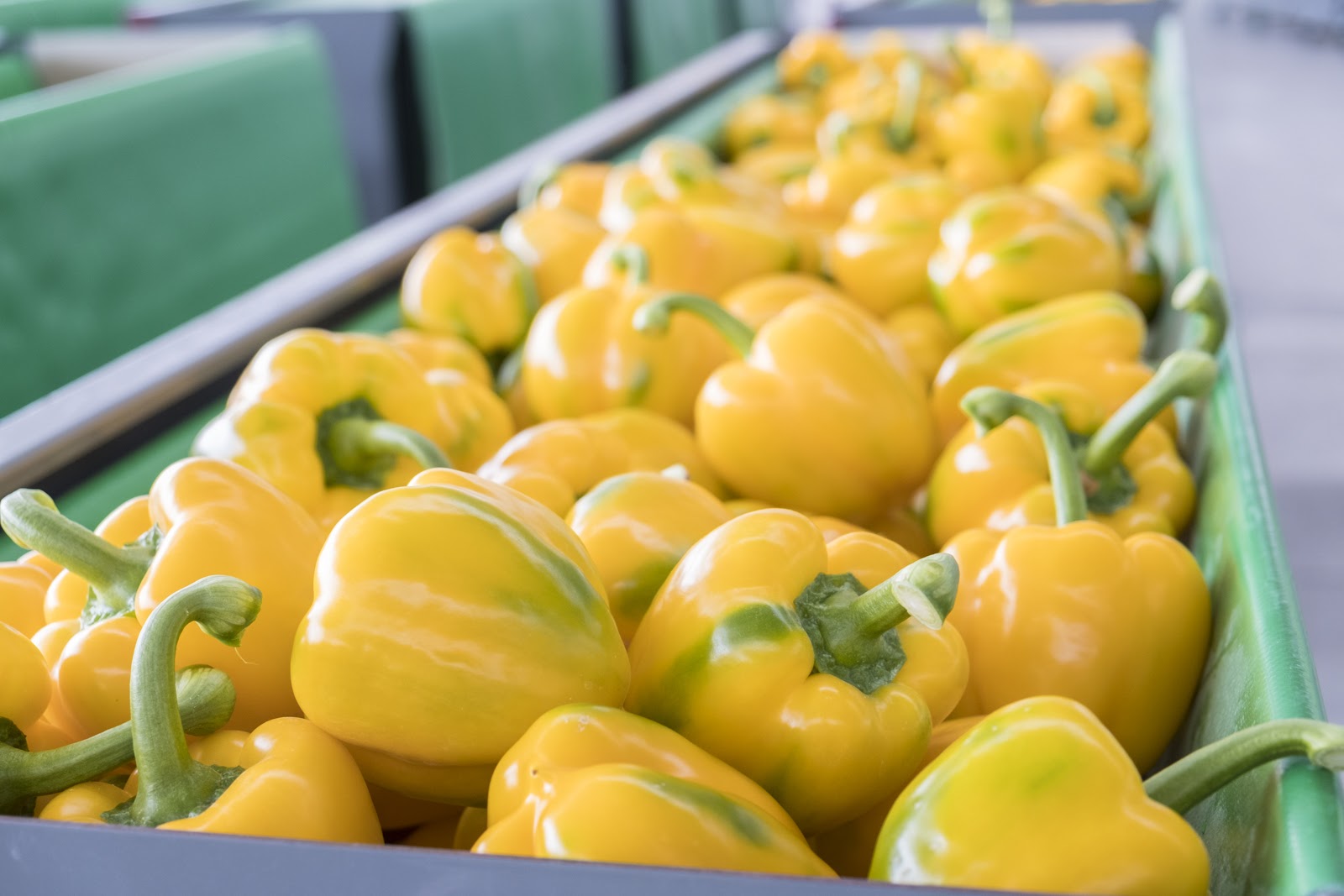
Did you know that standard garbage bags don’t decompose in landfills? Switching to biodegradable kitchen bags that will break down once they’re at the landfill is an easy eco-friendly change to make.
Aerators create high pressure while decreasing the amount of water flow by combining water and air. This reduces the rate that water flows through your faucet—from an average of 5 gallons per minute down to 2 GPM—helping you conserve more water.
When buying fresh produce, make sure you know how to properly store your fruits and veggies. Proper storage will prolong their freshness and ensure they don’t spoil so you can enjoy eating them instead of throwing them away.
Share Your Green Kitchen Tips!
Do you have a tip for making your kitchen more environmentally-friendly? Share it with us in the comments section!



